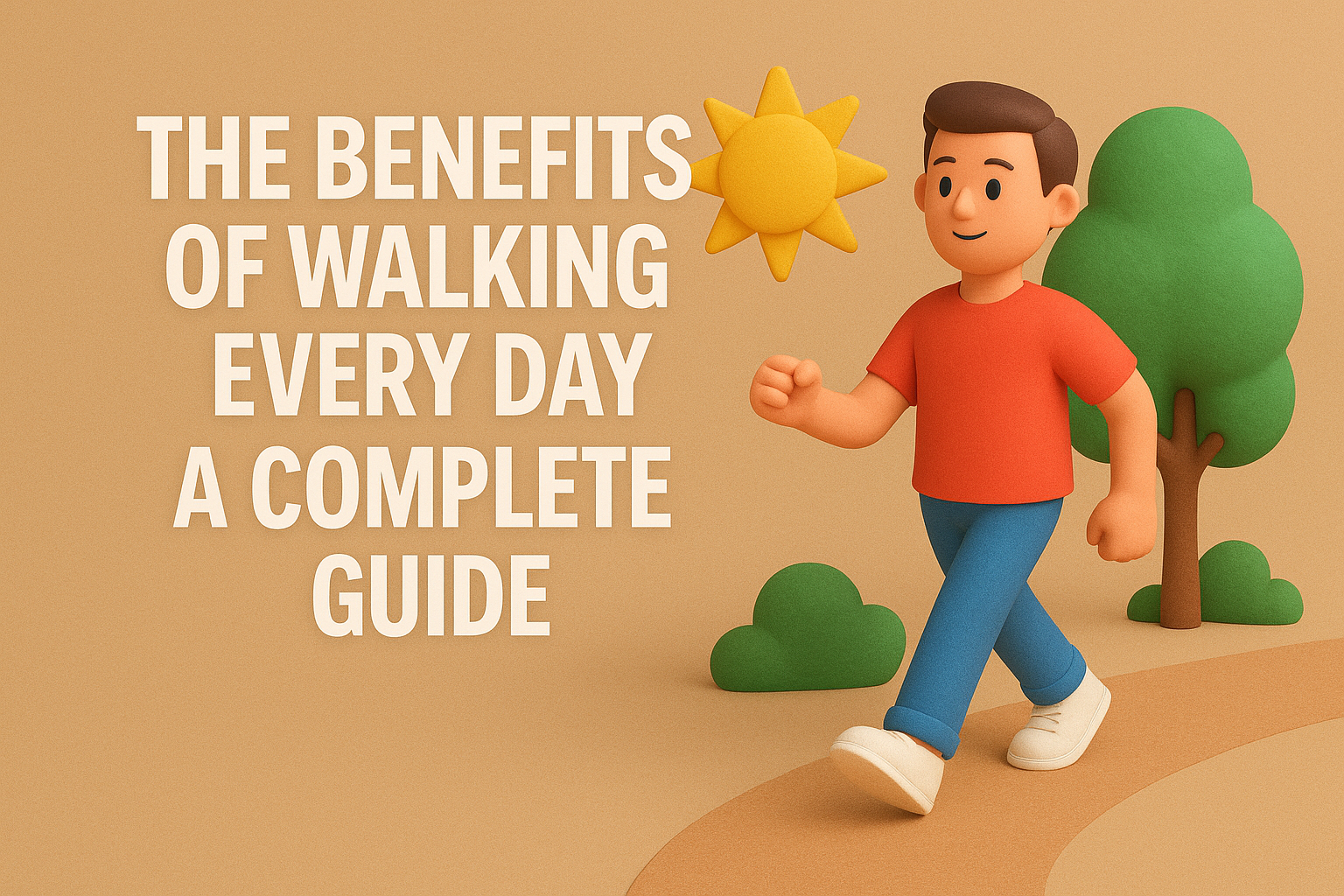The Benefits of Walking Every Day – A Complete Guide
Walking is one of the simplest and most effective ways to improve your health. It requires no special equipment, can be done anywhere, and suits almost every fitness level. From improving heart health to boosting mood and helping weight management, daily walking delivers a powerful range of benefits. This guide explains why walking matters, how much you should walk, and practical tips to make walking a regular habit.
Why Walking Is So Powerful
Walking is a low-impact aerobic activity that gently raises your heart rate and increases circulation. Unlike high-intensity workouts, walking is sustainable over the long term and has a low risk of injury. It strengthens muscles, supports joint health, aids digestion, and helps maintain a healthy weight. Because it’s accessible and easy to combine with daily life, walking often becomes a long-lasting habit for many people.
Key Health Benefits of Walking Daily
1. Improves Heart Health
Regular walking helps lower blood pressure, reduce bad cholesterol (LDL), and increase good cholesterol (HDL). These changes reduce the risk of heart disease and stroke. Aim for brisk walking that makes you slightly breathless — this improves cardiovascular fitness without stressing your body.
2. Aids Weight Management
Walking burns calories and helps maintain a healthy metabolism. Even moderate daily walking, combined with small dietary changes, can lead to gradual weight loss and better weight control over months.
3. Boosts Mood and Reduces Stress
Walking increases the production of endorphins — natural mood lifters. Time spent walking outdoors also reduces anxiety and improves mental clarity. Regular walking is linked with lower rates of depression and better emotional wellbeing.
4. Strengthens Muscles and Bones
Walking engages the legs, hips, and core, helping to maintain muscle tone. Weight-bearing activity like walking also supports bone density, which is important for preventing osteoporosis as you age.
5. Improves Digestion and Metabolism
Gentle walking after meals helps digestion by stimulating bowel movement and improving circulation. Regular walking also supports balanced blood sugar levels and insulin sensitivity.
6. Enhances Sleep Quality
Active people tend to fall asleep faster and enjoy deeper sleep. A daytime walk, especially outdoors, helps regulate your body clock and contributes to more restful nights.
How Much Walking Is Enough?
Health organizations commonly recommend aiming for at least 150 minutes of moderate-intensity activity per week. For walking, that typically equals about 30 minutes a day for five days a week. Another popular target is **10,000 steps per day**, which is a good goal for many people — but it’s not a strict rule. If you’re new to exercise, start with shorter walks (10–15 minutes) and gradually increase duration and pace.
Tips to Make Daily Walking Work for You
- Start small: If you are inactive, begin with 10–15 minute walks and slowly add time.
- Walk briskly: A pace where you can talk but not sing is ideal for moderate fitness gains.
- Use a step tracker: A simple pedometer or phone app helps you monitor progress and stay motivated.
- Schedule walks: Add walking to your daily routine — after breakfast, during a lunch break, or after dinner.
- Choose safe routes: Pick well-lit, flat paths and comfortable shoes to reduce injury risk.
- Make it social: Walk with friends, family, or join a local walking group to stay accountable.
- Mix it up: Try interval walking (short faster bursts), hill walks, or combine walking with light bodyweight exercises.
Walking for Specific Goals
For weight loss: Increase duration and include brisk intervals. Longer walks burn more calories over time.
For stress relief: Gentle, mindful walking in nature can be highly restorative.
For fitness improvement: Add speed and incline, and include 4–5 sessions per week to raise cardiovascular fitness.
Common Questions About Walking
Is walking enough exercise? For many people, regular walking is an excellent base of activity. It supports heart health, weight control, mood, and mobility. For complete fitness, include strength exercises 2–3 times a week if possible.
When is the best time to walk? Any time you can be consistent — morning walks boost energy, while evening walks can aid digestion and calm the mind.
Final Thoughts
Walking is simple, free, and powerful. It delivers wide-ranging benefits for both body and mind and fits easily into daily life. Whether you aim for a short daily stroll or a brisk 30-minute walk, the key is consistency. Start today, keep moving, and let walking become your most reliable step toward better health.
